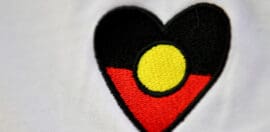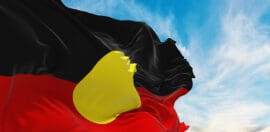‘Too important to get wrong’: Government pushes for Indigenous constitutional recognition

11 July 2019 at 3:21 pm
The Morrison government’s plan for Indigenous recognition in the constitution has won community sector support, but conservative forces within the Coalition are threatening to derail the proposal.
During a NAIDOC Week speech at the National Press Club, Indigenous Australians Minister Ken Wyatt pledged to build support for constitutional recognition with hopes of holding a referendum on the issue during this term of Parliament.
Wyatt said he had already started engaging and seeking the counsel of Indigenous leaders, but noted the need to design the right model which the majority of Australians would support.
“The Morrison government is committed to recognising Indigenous Australians in the constitution, and working to achieve this through a process of true co-design,” Wyatt said.
“Constitutional recognition is too important to get wrong, and too important to rush. The successful 1967 referendum was the result of tireless advocacy and an extraordinary nationwide momentum for change.
“If we want to see that kind of national consensus again, we need to be thorough and take the time to get it right.”
This push has been welcomed by Indigenous leaders, although Wyatt’s speech did not explicitly commit to creating a First Nations voice to Parliament – a key recommendation from the Uluru Statement from the Heart.
We are committed to developing a consensus option for Constitutional Recognition for Indigenous Australians through a process of true co-design. Constitutional Recognition is too important to get wrong, and too important to rush. @PressClubAust pic.twitter.com/MKeBXo6rfP
— Ken Wyatt MP (@KenWyattMP) July 10, 2019
Wyatt however did indicate a First Nations Voice might be legislated, rather than enshrined in the constitution as the statement called for.
This has drawn the ire of conservative forces within the Coalition, who believe a First Nations voice would create a “third chamber” of Parliament.
Conservative Liberal MP Craig Kelly told Guardian Australia the government should focus on practical matters, such as closing the gap between Indigenous and non-Indigenous people, instead of on creating “a separate body with people voting for people based on race”.
Liberal senator James Paterson was similarly concerned, telling The Age: “Any change that threatens our successful parliamentary system… would be a backward step.”
The call for a First Nations voice was originally rejected by the Coalition in 2017, with then-prime minister Malcolm Turnbull labelling an Indigenous-only body “contrary to principles of equality and of citizenship” and neither “desirable or capable of winning [public] acceptance”.
But community groups have thrown their support behind this latest push.
The National Aboriginal Community Controlled Health Organisation (NACCHO) said it welcomed Minister Wyatt’s call for all Australians to join him on the journey to constitutional recognition.
CEO Patricia Turner again pledged NACCHO’s support for the creation of a voice for Indigenous Australians to influence the Australian Parliament.
“NACCHO stands ready to do our part in achieving the best possible outcomes for Aboriginal and Torres Strait Islander peoples throughout Australia, and we will continue to take a leadership role in the Coalition of Peaks Partnership with the Council of Australian Governments (COAG) on Closing the Gap,” Turner said.
Oxfam Australia CEO Dr Helen Szoke said she welcomed the minister’s leadership in committing to developing a consensus position for a referendum.
She said many of Australia’s First Peoples wanted the government to develop an ambitious proposal rather than a minimalist one that only addresses recognition.
“The consensus option should respect and reflect the historic Uluru Statement from the Heart and its call for a voice to the national Parliament, with a process of agreement,” Szoke said.
“Oxfam Australia believes the federal government has a vital role to play in supporting and encouraging treaty processes to emerge and come to fulfilment. These agreements should not be left only to the states and territories.”
Meanwhile, Labor has fully backed the Uluru Statement and called for a First Nations voice to be entrenched in the constitution.
Both the government and the opposition are aware of the difficulties involved in achieving constitutional change, with only eight of 44 referendums held since federation succeeding.







